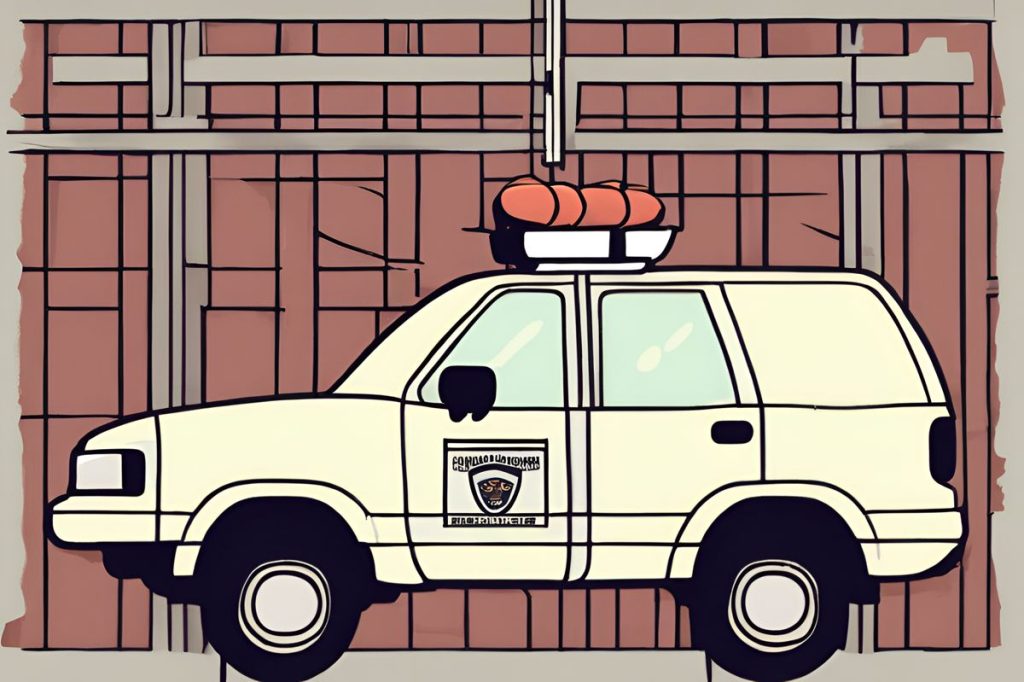Turkish Cypriot police halted a meat smuggling operation at Ayios Dhometios crossing, seizing 75 kilograms of lamb hidden in a car boot originating from the Republic headed to northern Cyprus. The incident has raised concerns about the impact on local farmers, the economy, and consumer health due to the uncertain standards of smuggled products.
What was the recent smuggling operation uncovered in Cyprus?
Turkish Cypriot police intercepted a smuggling attempt at Ayios Dhometios crossing, seizing 75 kilograms of lamb hidden in a car boot. The meat originated from the Republic and was headed to northern Cyprus, sparking concerns over local farmers’ livelihoods, economic impact, and consumer health due to uncertain standards of smuggled products.
Smuggling Operation Intercepted
Turkish Cypriot police made a significant discovery last week when they intercepted a smuggling attempt involving a substantial quantity of lamb. Officials reported that 75 kilograms of the meat had been concealed within the confines of a vehicle’s boot. The incident occurred at the Ayios Dhometios crossing point, a known juncture for such clandestine activities. The police swiftly took legal measures against the driver, a man of 27 years, indicating the seriousness with which they are treating the case. Their investigations are progressing, with the intent to unravel the full extent of this underground trade.
The meat, apparently originating from the Republic, was en route to northern Cyprus, a journey that has been fraught with controversy. This event is not an isolated case; in recent times there has been an uptick in the number of illegal meat imports into the north. Such illicit activities have adverse effects on local farmers, the economy, and potentially, the health of consumers due to unknown origins and standards of the smuggled products.
The Tension Between Local Farmers and Government
Throughout the year, the topic of meat trade has simmered with contention. Local farmers, deeply concerned about their livelihoods, have voiced their dissent quite vocally. In a symbolic act of protest, they camped outside government buildings for an entire week. Their grievance? A plan to import meat, which they believed would devalue their products and undercut their earnings. The goal of these imports was ostensibly to reduce meat prices for consumers, but the farmers weren’t convinced that this was the beneficial strategy.
The complexity of the issue is evident. While meat prices soar in northern Cyprus, salaries remain low, pinching the pockets of the average citizen. Two shipments of New Zealand lamb, brought in from the Netherlands, have already made it to the market, with the promise of complying with European Union standards. Yet, the ongoing smuggling suggests that a significant number of consumers are still seeking alternative sources for their meat, perhaps driven by the high market prices or a preference for local products.
Government’s Response to the Crisis
Unal Ustel, the north’s ‘prime minister’, has publicly acknowledged the events leading to the decision to import meat. A history of arrests and fines linked to smuggling attempts by Turkish Cypriots was cited as a catalyst for change. Ustel expressed his unease about the community’s tendency to purchase meat from the south with uncertain quality and origin. The government’s solution? To source meat that conforms to EU directives and standards, theoretically providing a safer and more regulated alternative to clandestine imports.
Nevertheless, current regulations under the Green Line policy strictly prohibit the movement of animals and animal products between the two sides of Cyprus. This policy has been a bone of contention for some time. In a dramatic demonstration of their plight, butchers once slaughtered two lambs in protest, calling for the government to devise a strategy that would enable meat to be sold at prices comparable to those in the Republic. Their demands highlight the desperation faced by local businesses striving to remain afloat amidst stringent policies and economic challenges.
What was the recent smuggling operation uncovered in Cyprus?
Turkish Cypriot police intercepted a smuggling attempt at Ayios Dhometios crossing, seizing 75 kilograms of lamb hidden in a car boot. The meat originated from the Republic and was headed to northern Cyprus, sparking concerns over local farmers’ livelihoods, economic impact, and consumer health due to uncertain standards of smuggled products.
How has the tension between local farmers and the government evolved in Cyprus?
Local farmers in Cyprus have been protesting against the government’s plans to import meat, fearing that it would devalue their products and undercut their earnings. The government’s goal was to reduce meat prices for consumers, but farmers were skeptical about the benefits. This tension has escalated due to the influx of illegal meat imports, exacerbating the economic challenges faced by local farmers.
What is the government’s response to the crisis in Cyprus?
The government in northern Cyprus has acknowledged the issues surrounding meat smuggling and has decided to import meat that complies with EU standards to provide a safer and more regulated alternative. Despite strict regulations prohibiting the movement of animals and animal products between the two sides of Cyprus, the government’s aim is to address the concerns of consumers regarding the quality and origin of meat products.
What actions have been taken by Turkish Cypriot police in response to the uncovered smuggling operation?
Turkish Cypriot police have taken legal measures against the driver involved in the smuggling attempt, a 27-year-old man. Investigations are ongoing to uncover the full extent of the underground meat trade in Cyprus. The interception of the smuggling operation underscores the authorities’ commitment to addressing illicit activities that threaten local farmers, the economy, and consumer health.

